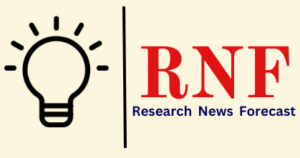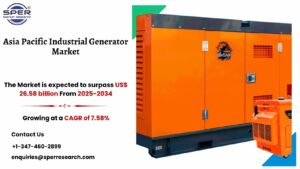Japan Agriculture Machinery Market Share, Growth Drivers, Analysis by Business Opportunities, Emerging Trends and Future Outlook to 2022-2032: SPER Market Research

According to SPER Market Research, Throughout the forecast period, it is expected that the Japanese agricultural machinery market will expand. Japan’s agricultural output has one of the highest crop yields per unit area in the world because terraces are used for farming in small spaces. Nonetheless, the nation’s agricultural self-sufficiency rate only covers around half of its entire need, with the remaining portion being met by imports. Productivity needs to rise in order to achieve self-sufficiency. Although the government favours small-scale farming over industrial farming, the agricultural industry in Japan is extensively protected and subsidized, which helps the market for agricultural equipment to expand. As the Asia-Pacific nation with the highest amount of agricultural mechanization, Japan is well known for this fact. Japan, a nation with extensive industrialization, has a fully developed market for agricultural equipment. The Japanese agriculture equipment market is anticipated to soar during the projected period, nonetheless, in order to completely utilize the limited arable land and boost productivity. Japan works to make the best use of its agricultural land possible in order to support its people, along with a low level of arable land.
Japan Agricultural Machinery Market Overview (2022-2032)
- Forecast CAGR (2022-2032): XX%
- Forecast Market Size (2032): XX billion
Farm machinery helps the country’s farmers, who have limited resources, enhance production. In addition, as the amount of farmland that has been abandoned has increased, Japan has recently encountered difficulties in this area. It will be challenging for Japan to recruit substitutes to perform agricultural tasks in the future as the country’s farming population is aging quickly. For Japan to replace farm labor, mechanization of agriculture became crucial. Moreover, self-sufficiency can be attained with the aid of agricultural machinery that minimizes waste. For instance, equipment like combine harvesters helps to prevent grain waste during harvesting and contributes to satisfying the nation’s food needs. Thus, the higher consumption encourages higher productivity, which lowers crop loss.
Impact of COVID-19 on the Japan Agricultural Machinery Market
Due to strict lockdown requirements that affected the farm machinery industry’s supply chain, the COVID-19 pandemic had a direct influence on the market. Precision agriculture, according to industry analysts, might experience an exponential growth after COVID-19 in order to assist farmers and the food business in achieving greater and more sustainable yields. As a result, the demand for agricultural machinery is projected to increase in the upcoming years.
Most farmers utilize the tractor as one of their main pieces of farm equipment. Compared to other agricultural gear, the use of tractors is rising in Japan. The ongoing pandemic circumstances led to a small drop in production and purchases. Significant factors driving the increase in tractor sales include a lack of labour, rising labour prices, supportive government policies, finance availability, and the need to boost agricultural production. The most significant crop in Japan is rice. Since rice is the most mechanized crop in the nation, tractors are used more frequently than other pieces of agricultural equipment since they are the main tools used in cultivation. Also, since they increase farming productivity compared to conventional tractors, driverless tractors are anticipated to become increasingly common in the coming years. By creating technology like autonomous tractors, the Ministry of Agriculture, Forestry, and Fisheries of Japan hopes to lower the cost of producing rice. Government funding so encourages the use of autonomous tractors, increasing sales of the tractor during the anticipated period.
Request For Free Sample Report @ https://www.sperresearch.com/report-store/japan-agricultural-machinery-market.aspx?sample=1
Japan Agriculture Equipment Market Key Segments Covered
The SPER Market Research report seeks to give market dynamics, demand, and supply forecasts for the years up to 2032. This report contains statistics on product type segment growth estimates and forecasts.
By Product Type: Based on the Product Type, Japan Agricultural Machinery Market is segmented as; Harvesting Machinery (Balers, Mowers, Other Harvesting Machinery), Haying Machinery, Irrigation Machinery, Planting Machinery (Planters, Seed Drills, Spreaders, Other Planting Machinery), Ploughing and Cultivating Machinery (Cultivators and Tillers, Harrows, Ploughs, Other Ploughing and Cultivating Machinery), Tractors (Compact Utility Tractor, Row Crop Tractor, Utility Tractor, Other Tractor).
By Region: This report also provides the data for key regional segments of Chubu, Chugoku, Hokkaido, Kyushu, Shikoku, Tohoku.
This study also encompasses various drivers and restraining factors of this market for the forecast period. Various growth opportunities are also discussed in the report.
Japan Agricultural Machinery Market Key Players:
The market study provides market data by competitive landscape, revenue analysis, market segments and detailed analysis of key market players such as; Deere & Company, Iseki & Co. Ltd, Kubota Corporation, Mitsubishi Mahindra Agricultural Machinery Co. Ltd, Yanmar Co. Ltd.
For More Information, refer to below link:-
Japan Agriculture Equipment Market Demand
Related Reports:
Follow Us –
LinkedIn | Instagram | Facebook | Twitter
Contact Us:
Sara Lopes, Business Consultant – U.S.A.
SPER Market Research
+1-347-460-2899





